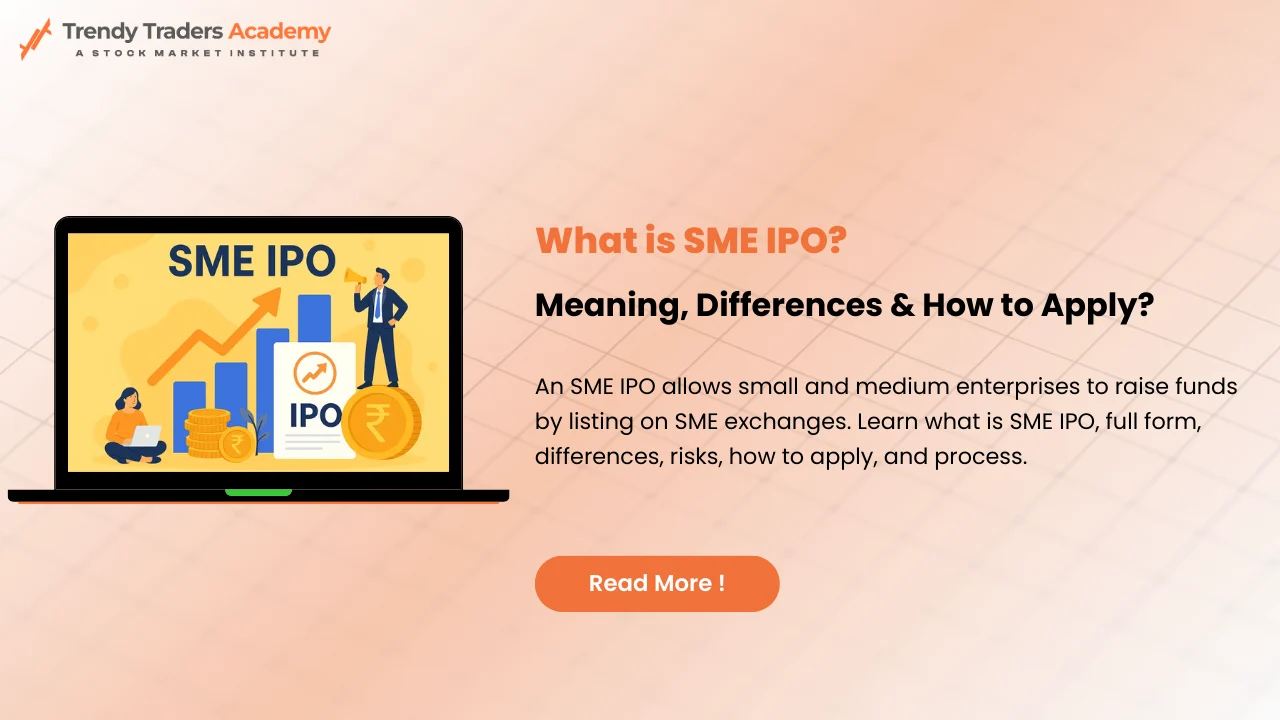
How to Buy Unlisted Shares in India – Easy Guide
Everyone who is aware of the stock market knows to buy shares in popular exchanges like NSE or BSE, but no knows what exists beyond this. Beyond this there is vast and little known world called unlisted-shares. One cannot buy these shares through a normal trading account but these non listed shares can offer tremendous rewards if one enters wisely and cautiously.
This article will dive into what is unlisted shares, how one can invest in them, where can one find the unlisted shares list and all the other important things that should be known before stepping into this niche market.
What Is Unlisted Shares?
Before stepping in, we should be clear with the term. What is non listed shares?
Equity securities are issued by companies which are not listed on a known and accepted stock exchange and these are known as unlisted shares. These non listed shares can be issued by a range of companies ranging from early-age startups to private businesses which have not yet entered the recognized stock exchange. As they are not listed, buying and selling of these shares are not aligned with exchange rules. Deals are typically carried out privately through brokers, investment platforms, or company insiders.
Why Do Companies Stay Unlisted?
Many businesses prefer to stay private for various reasons:
- To avoid regulatory scrutiny and listing costs
- To retain more control over business decisions
- To raise funds through private placements or venture capital
- To build value before eventually launching an IPO
Large and big companies can sometimes remain unlisted for years and this is not uncommon in the stock market space. Companies like HDFC Securities, Reliance Retail or Chennai Super Kings- all have a massive demand in the private market though they are not traded publicly.
How to Buy Unlisted Shares in India?
If you’re wondering how to buy unlisted shares, know that it involves a different process than your regular stock purchase.
1. Using Specialized Investment Platforms
There are dedicated online platforms offering access to unlisted equities. These portals provide a curated unlisted shares list, detailing price, valuation, company background, and potential exit strategies. Popular platforms include:
UnlistedZone
Planify
Sharescart
Altius Investech
Each of these services facilitates secure and compliant transactions.
2. Brokers and Intermediaries
Many SEBI-registered brokers specialize in the trade of non listed shares. They often source shares from company insiders, existing investors, or employees looking to monetize ESOPs.
3. Via Employee Stock Options (ESOPs)
In the startup ecosystem, employees may be granted shares as part of compensation. Investors can sometimes purchase these ESOPs via secondary deals if employees wish to exit early.
4. Direct Purchase from Shareholders
In rare cases, one can buy directly from an existing shareholder. This usually happens in closed investor circles or with the help of investment bankers who facilitate such transactions.
What Do You Need to Invest?
To purchase non listed shares, here’s what you must have in place:
- Demat Account: Shares are held electronically
- KYC Compliance: PAN, Aadhaar, and address proof are mandatory
- Transaction Documents: Share transfer agreements, price details, and payment proof
- Banking Access: Transfers must be done through legal banking channels for compliance
Once the transaction is complete, the shares are credited to your Demat account via off-market transfer.
Where to Find a Trusted Unlisted Shares List?
Because these shares aren’t listed on an exchange, there’s no official directory. However, several websites maintain real-time unlisted shares lists along with price trends and investor updates. Trusted sources include:
- UnlistedZone.com
- Planify.in
- Sharescart.com
They showcase detailed insights on companies like Tata Technologies, Mobikwik, or PharmEasy — all of which have gained traction as high-growth private investments.
Pros of Investing in non listed shares
Here’s why many seasoned investors are including non listed shares in their portfolios:
- Early Entry Advantage: Get in before IPOs at lower valuations
- Portfolio Diversification: Adds non-correlated assets
- Access to High-Growth Sectors: Especially tech, fintech, and pharma
Wealth Creation: Early investors in Nykaa and Zomato reaped big gains
Key Risks to Consider
No investment is without risk, and privately traded shares come with specific challenges:
- Liquidity Issues: Selling might take time, especially in emergencies
- Price Discovery: No live market — prices are negotiated privately
- Information Gaps: Less disclosure than listed firms
- Tax Complexity: Gains are taxed differently
Investors must approach cautiously and preferably limit exposure to 5-10% of their total investment portfolio.
Tax Rules for Unlisted Shares in India
If you profit from selling privately traded shares, here’s how taxation works:
- Short-term Capital Gains (held <24 months): Taxed per income slab
- Long-term Capital Gains (held >24 months): Taxed at 20% with indexation benefits
Note: If these shares later become listed through an IPO, post-listing tax norms apply after a 6-month lock-in.
Who Should Invest?
Not everyone is suited for this market. Ideal investors include:
- High-net-worth individuals (HNIs)
- Long-term investors with a high risk appetite
- Professionals with knowledge of financial statements and valuations
- Investors looking for non-traditional, high-growth avenues
Before investing, always research the company thoroughly or consult financial advisors.
Examples of Unlisted Share Performers
Here are a few notable mentions:
Tata Technologies: Gained heavy investor interest before its IPO
Reliance Retail: A blue-chip quality company despite being unlisted
HDFC Securities: Its shares were traded in private markets before merging with HDFC Bank
CSK (Chennai Super Kings): Attracted retail and sports fans alike for its brand value
Case Study: Tata Technologies — A Pre-IPO Winner
A classic example of investor gains from privately traded shares is Tata Technologies. Before the company announced its IPO plans, its unlisted equity was trading actively among private investors.
In 2022–23, early investors bought these shares in the ₹800–₹900 range. When Tata Technologies listed, its IPO was oversubscribed many times, and the listing price surged significantly — offering pre-IPO shareholders substantial returns.
This demonstrates how investors can benefit from identifying and entering fundamentally strong companies before they hit the public market.
Strategies to Maximize Returns in Unlisted Equities
Investing in privately traded shares should be approached with careful planning and research. Here are practical tips:
1. Follow Institutional Investments
If well-known venture capital or private equity firms are backing a company, that’s a strong indicator of potential. Institutions conduct rigorous due diligence — if they’re betting on a firm, it might be worth your attention too.
2. Check Financial Reports and Compliance
Always ask for financial statements, audit reports, and valuation assessments. While privately traded shares don’t follow the same disclosure norms as listed companies, reliable brokers and platforms often provide this data upon request.
3. Diversify Your Private Market Portfolio
Don’t put all your capital into a single unlisted firm. Instead, spread it across 3–4 promising companies across industries — like fintech, logistics, and healthcare — to reduce risk and increase potential returns.
4. Hold Long-Term for Better Tax and Growth Benefits
Unlike listed stocks, you may not be able to exit in the short term. This illiquidity, however, can be an advantage when companies grow significantly over time. Also, holding for 24+ months qualifies you for long-term capital gains tax with indexation benefits.
5. Use the Unlisted Shares List as a Watchlist
Before committing funds, track performance, price movement, and investor sentiment using any regularly updated unlisted shares list. Platforms like UnlistedZone often display previous transaction history and indicative pricing for comparison.
Exit Strategies for Unlisted Shareholders
You might wonder: if it’s tough to buy privately traded shares, isn’t selling even harder?
While it can be less liquid than listed stocks, there are clear exit paths:
IPO Event: Shares get listed, and you can exit post the lock-in period
Buybacks: Some companies periodically buy back privately traded shares
Secondary Transfers: Sell to another private investor through brokers
Merger or Acquisition: If the company gets acquired, investors receive cash or new equity
Understanding these options is essential, especially since your capital could be tied up for years.
Future Trends in the Indian Unlisted Market
The market for unlisted shares in India is expected to become more streamlined in the next few years. Several developments are already underway:
- SEBI’s Regulatory Focus: Tighter guidelines for fair practices in private market transactions
- Digital Onboarding and KYC: Easier investment process through fintech platforms
- Increased Retail Participation: As awareness grows, so will demand
- Potential for Government-Backed Platforms: Similar to how BSE, SME and NSE Emerge help small companies raise capital
As these systems mature, more retail investors may get access to high-quality privately traded shares, leveling the playing field that was once dominated by institutions.
Final Thoughts
Investing in privately traded shares in India offers both a challenge and an opportunity. While privately traded shares carries its own set of risks such as illiquidity, lack of pricing transparency, and market access , they come with extreme perks and high returns. Having knowledge of how to buy privately traded shares and the trusted place where one can access reliable privately traded shares list can give a proper edge in this niche genre.
One should perform deep due diligence, take experts opinion and ensure that the investments match one’s risk tolerance and financial vision.
Also Read : Top 10 Stock Market Training Institutes in India
FAQ'S
Can I use Zerodha or Groww to buy privately traded shares?
No. Regular platforms like Zerodha or Groww only allow listed securities. On how to buy privately traded shares, you’ll need specialized investment platforms or private brokers.
Is it legal to buy and sell unlisted shares?
Yes, buying and selling privately traded shares is legal in India. However, all transactions must align with SEBI guidelines, KYC norms, and taxation laws. One should always deal through credible intermediaries.
Are privately traded shares more profitable than listed shares?
They can be, but they are also riskier. If you identify a promising company early, the returns might be significantly higher than listed stocks. However, the opposite can also occur. Choose wisely.
How long should I hold privately traded shares?
Most investors hold them for 2–5 years, often until the company goes public. Long-term holding can maximize gains and benefit from indexation in taxation.










